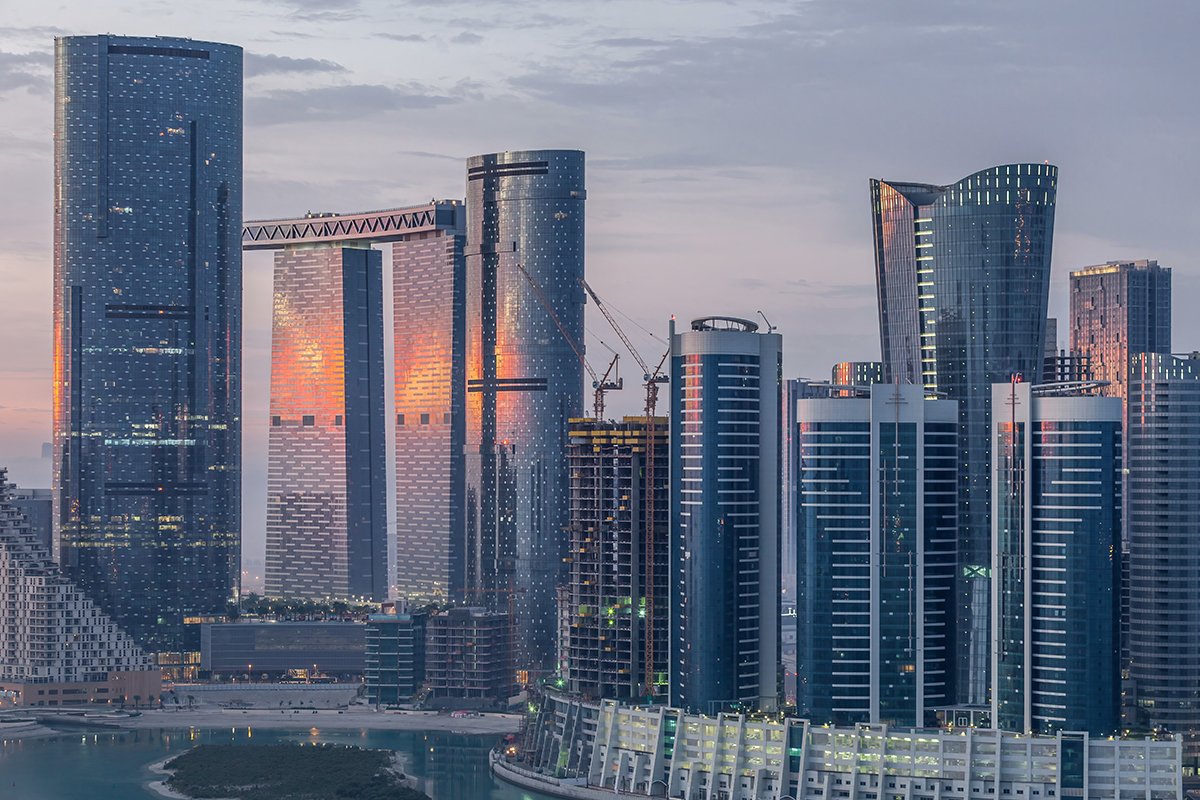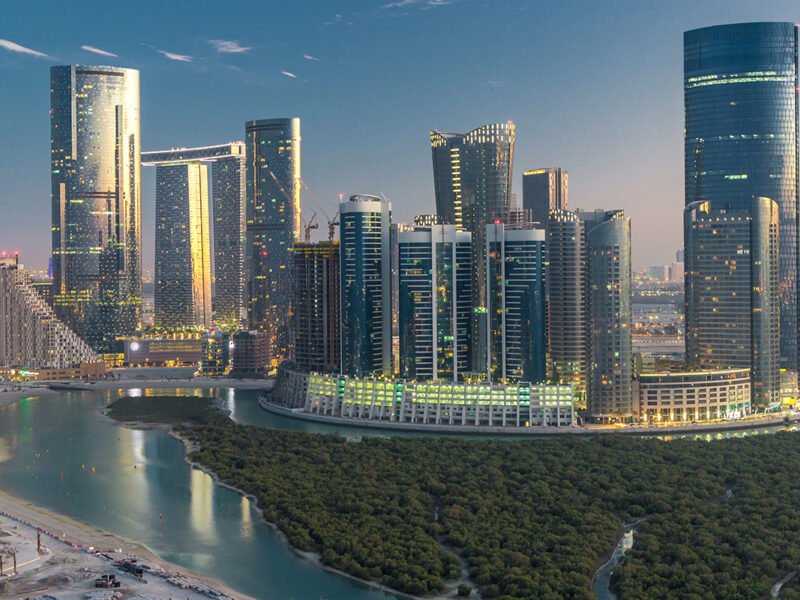
Abu Dhabi real estate boom continues in H1 2025 as the capital city recorded strong growth in sales, rising foreign investments, and robust demand for luxury and mid-market properties. Despite global economic uncertainties, the emirate’s property sector has proven resilient, positioning itself as one of the fastest-growing real estate markets in the Middle East.
The first half of 2025 highlighted Abu Dhabi’s ability to combine ambitious development projects with a stable investment environment. This winning formula is attracting both local buyers and global investors seeking long-term returns in a market that continues to outperform expectations.
The Abu Dhabi real estate boom is not just a temporary upswing but the result of structural demand and investor confidence. Official reports from the Department of Municipalities and Transport (DMT) revealed that property sales and transactions in the first half of 2025 reached record highs.
Total real estate sales exceeded AED 50 billion, with a strong mix of residential, commercial, and mixed-use developments fueling growth. Popular communities such as Yas Island, Saadiyat Island, and Al Reem Island continued to lead the market, offering premium properties that appeal to high-net-worth individuals and expatriates.
Several key drivers have fueled Abu Dhabi’s remarkable growth story in H1 2025.
The ongoing construction of mega projects, including cultural hubs on Saadiyat Island, waterfront developments, and eco-friendly smart city communities, has strengthened Abu Dhabi’s position as a global real estate hub. These projects offer lifestyle experiences rather than just housing, creating strong long-term appeal.
The Abu Dhabi government has played a critical role in supporting the boom. Reforms allowing foreign ownership in freehold areas, simplified visa processes linked to property investments, and strong regulatory oversight have boosted investor confidence. Transparency and security in transactions continue to attract global buyers.
Abu Dhabi’s growing population, driven by new job opportunities and economic diversification, has fueled demand for residential units. Families, young professionals, and expatriates are increasingly choosing Abu Dhabi as a long-term home, creating sustained demand for apartments and villas alike.
Foreign investors, particularly from Europe, Asia, and the wider Middle East, are increasingly looking to Abu Dhabi for stable property returns. With high rental yields and strong capital appreciation, the emirate has become a preferred destination for global investors seeking both safety and profitability.

The Abu Dhabi real estate boom in H1 2025 has been evident across multiple market segments.
High-end villas and waterfront mansions continue to dominate investor interest. Communities like Saadiyat Island, known for its cultural and lifestyle appeal, have attracted wealthy buyers from across the globe. Luxury apartments on Yas Island also saw record sales, fueled by demand for exclusive living spaces.
While luxury sales grab headlines, Abu Dhabi has also seen growing demand in the mid-market segment. Developers are responding with projects designed to cater to young professionals and families seeking quality housing at competitive prices. This diversification ensures sustainable long-term growth.
The commercial real estate market benefited from Abu Dhabi’s continued diversification of its economy. Business hubs and mixed-use developments combining residential, retail, and office spaces have grown in popularity, offering investors versatile opportunities.
The rental market has been another strong pillar supporting the Abu Dhabi real estate boom. Average rental yields in key areas such as Al Reem Island and Khalifa City remain among the highest in the GCC. With a growing number of expatriates relocating to Abu Dhabi, demand for rental units continues to rise.
This performance has positioned real estate stocks linked to Abu Dhabi developers as some of the most attractive equities in the UAE markets. Investors see property as both a stable and profitable long-term play.
While the outlook remains positive, the Abu Dhabi real estate boom also faces challenges that could affect momentum in the long run.
Potential oversupply in certain residential segments remains a concern, as too many project launches could put pressure on prices and yields. Additionally, external risks such as global interest rate hikes, oil market fluctuations, and geopolitical tensions could influence investor sentiment.
However, market experts believe Abu Dhabi is well-placed to mitigate these challenges thanks to careful planning, controlled project pipelines, and strong regulatory oversight.
Looking ahead to the second half of 2025, analysts expect the Abu Dhabi real estate boom to continue, supported by mega events, rising tourism, and increased foreign investments. Ongoing projects on Saadiyat Island, Yas Island, and new cultural districts are expected to maintain investor enthusiasm.
Sustainability is also expected to play a major role in the next wave of developments. Eco-friendly communities and smart city technologies will appeal to both domestic and international buyers seeking modern, future-ready properties.
The Abu Dhabi real estate boom continues in H1 2025, with strong sales, rising demand, and robust investor interest reinforcing the emirate’s position as one of the leading property markets in the region. With mega projects, supportive government policies, and global investor confidence, the outlook for the sector remains highly positive.
For investors, homebuyers, and developers alike, Abu Dhabi offers a rare combination of growth, stability, and opportunity. As the market moves into the second half of 2025, the emirate is set to remain a shining example of how real estate can thrive even amid global uncertainties.
o follow us : Instagram
Read More-Abu Dhabi Real Estate Market Proves Strong and Resilient
